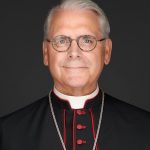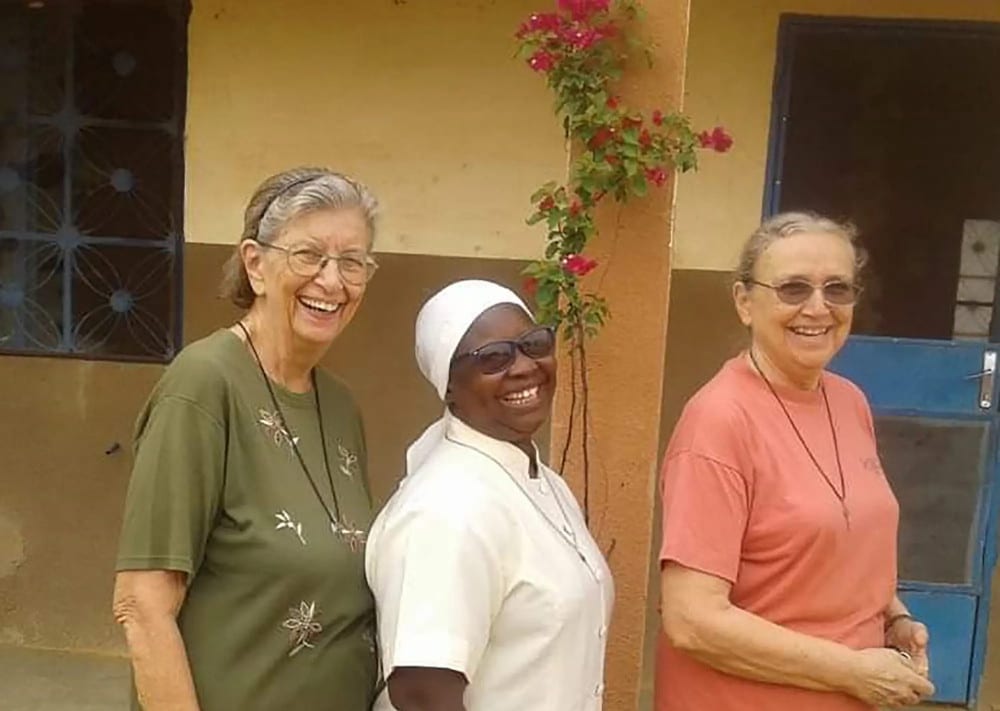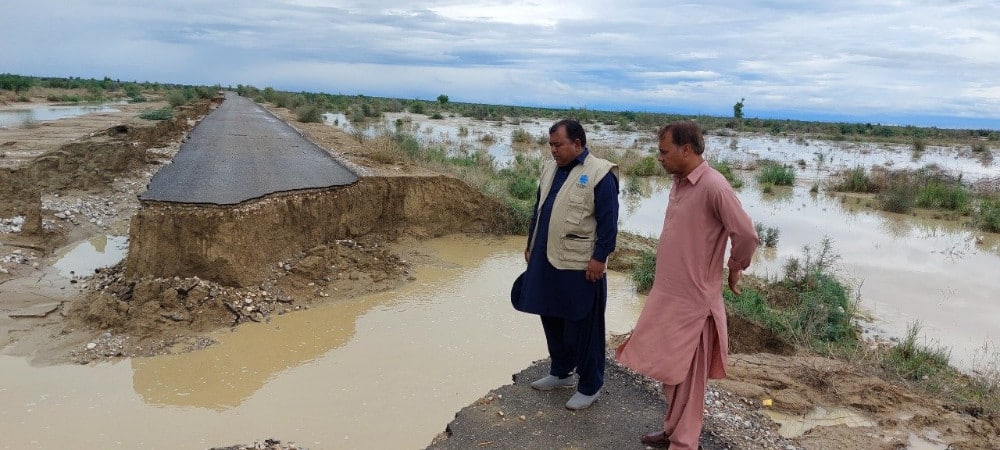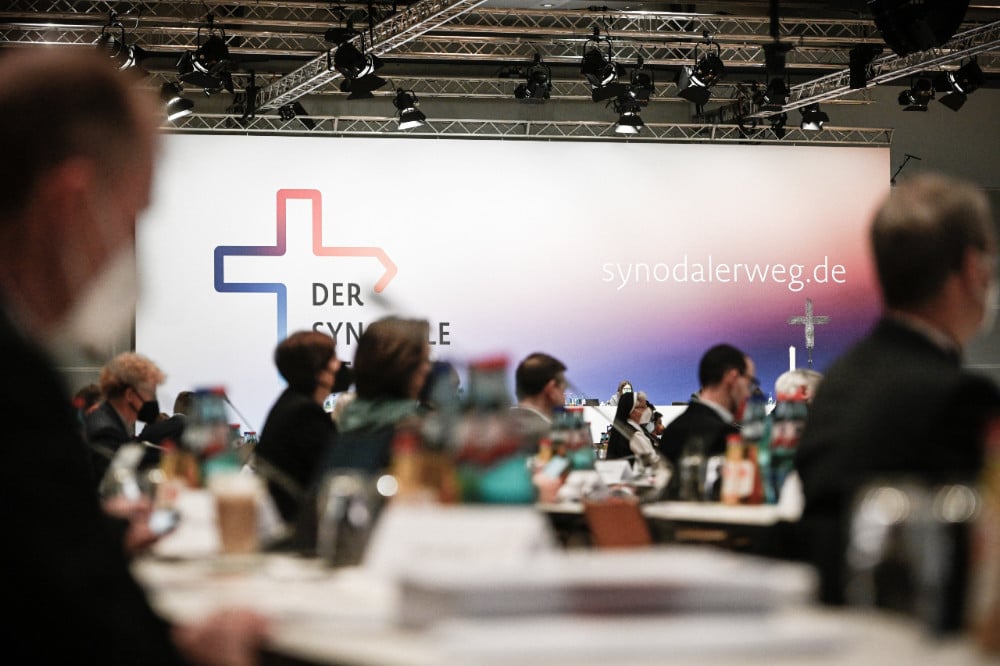 In a video released Wednesday — promoting his monthly call to worldwide prayer — Pope Francis announced he has chosen this September to ask us to pray for the abolition of the death penalty worldwide. “Each day, there is a growing ‘no’ to the death penalty around the world. For the Church, this is a sign of hope.”
In a video released Wednesday — promoting his monthly call to worldwide prayer — Pope Francis announced he has chosen this September to ask us to pray for the abolition of the death penalty worldwide. “Each day, there is a growing ‘no’ to the death penalty around the world. For the Church, this is a sign of hope.”
According to the Catholic Mobilizing Network, there are at least 28,670 men and women on death row throughout the world. That number doesn’t include the few countries whose governments often do not report reliable numbers. More than 2,400 of these men and women are on death row in the United States. It is shameful and unnecessary, and Pope Francis calls it completely unacceptable.
In my own state of Oklahoma, after six years without executions, the governor and attorney general announced an extremely aggressive schedule of execution, killing 25 people in the next 28 months. The first of these, James Coddington, was executed this past week. As the Gospels and Pope Francis have challenged us, we must choose a new path of mercy that values every human life, protects society and stops the cycle of violence that perpetuates a throwaway culture.
Let me be very clear: The horrifying crimes committed by those on death row have torn apart untold numbers of families and friends of victims, leaving deep scars and lifelong trauma. A civilized society must hold these criminals accountable, but we now have the means to carry out justice without resorting to capital punishment.
Crime is on the rise throughout our nation from big cities to small communities. We need serious improvements throughout the entire justice and prison system that protect society while providing honest rehabilitation and the potential for redemption, even for those who will spend the rest of their lives behind bars. A very clear and basic step forward is to abolish the death penalty in every state and every nation.
| Watch the video |
|---|
 In the video message promoting his prayer intention for September, Pope Francis once again spoke out strongly against the death penalty, saying: “Capital punishment offers no justice to victims, but rather encourages revenge. And it prevents any possibility of undoing a possible miscarriage of justice. … From a legal point of view, it is not necessary.” To view the pope’s video, promoted by his Worldwide Prayer Network, click here or scan the QR code. In the video message promoting his prayer intention for September, Pope Francis once again spoke out strongly against the death penalty, saying: “Capital punishment offers no justice to victims, but rather encourages revenge. And it prevents any possibility of undoing a possible miscarriage of justice. … From a legal point of view, it is not necessary.” To view the pope’s video, promoted by his Worldwide Prayer Network, click here or scan the QR code. |
The Gospels teach us that each one of us is born with inherent dignity bestowed upon us by God that is not forfeited by any earthly action, even committing heinous crimes. In one of the most famous accounts in Scripture, Jesus challenged the status quo regarding the punishment for adultery — a crime punishable by death according to Jewish law. It was very difficult for a person of that time to not believe that stoning was the proper action. Yet, Jesus asked for mercy, and, to the crowd’s credit, they helped usher in a new and radical understanding of punishment, and it changed history.
It is because of this understanding of human dignity that the Church regards capital punishment as a fundamental life issue and deems it inadmissible in all cases, especially when we have other means to hold criminals accountable.
Some proponents argue this stance is only from the Church’s moral standpoint. While it is Church teaching, there are many practical, legal, humane and even fiscal reasons to abolish the death penalty. Among them is the cost of keeping a prisoner on death row, which is nine times higher than being imprisoned for life. That is nothing to say of the system itself, which is replete with flaws. Florida alone has overturned the convictions of 30 people since 1976, and similarly, 10 have been freed from death row in my own state of Oklahoma. These individuals were not granted clemency; they were exonerated for being wrongfully convicted in the first place.
There are at least 190 exonerations from death row that have taken place over the years nationwide. How much further damage have we caused other innocent family members of people we’ve wrongfully put to death? Other flaws throughout the system include widespread racial bias and a tendency to target vulnerable populations such as people with intellectual disabilities and severe mental illness. This last point cannot be overstated. According to many studies, the overwhelming majority of all incarcerated people have suffered some form of brain injury.
Taking one life for another ultimately does not bring closure and peace to victims’ families. It goes against the principle of valuing life, in all its forms, from an innocent child in the womb to a criminal. Justice is necessary, but it is mercy that perfects justice and brings healing.
There is a sign of hope. More than 144 countries have abolished the death penalty, whether legally or in practice. Unfortunately, the United States joins countries such as China, Saudi Arabia, Iraq, Iran and North Korea that still have death penalty laws in place. As Americans, that is a list that should give us pause.
Pope Francis points out in his video address one of the fundamental laws put forth as part of the Ten Commandments, “Thou shall not kill.” That is for the innocent as much as for the guilty.
It is the state’s responsibility to protect its citizens. Opposing the death penalty is not being “soft on crime”. There is a way to achieve justice while maintaining the dignity of life itself. In these very troubled times this is our chance to reject the culture of death and build up the culture of life. I strongly encourage you to partake in the Holy Father’s prayer request this month and pray for the end of the death penalty in your community and worldwide.
The Most Rev. Paul S. Coakley is archbishop of Oklahoma City and chairman of the U.S. Conference of Catholic Bishops’ Committee on Domestic Justice and Human Development.







